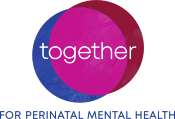Over 20 years ago now, I remember wandering through the research posters at an international conference on perinatal mental health. I looked around me at all the important research helping us to understand what contributes to perinatal mental health problems, and what we can do to address them. And I thought to myself: where are the sexual minority women in this research? Are they here, but not named, so invisible to me and my colleagues? Or is all this research conducted with straight women, meaning that we actually know nothing about the experience of perinatal mental health for lesbian, bisexual, and other sexual minority women? As a queer woman myself who planned to have kids in the coming years, this question was not only of academic interest, but really personally important to me. Where was I, and my community, in this body of research I wanted to build a career contributing to?
That moment led to my first research study on perinatal mental health among sexual minority women – the “Mothering on the Margins” (MOMS) study. In this mixed methods (surveys and interviews) study of over 60 Ontario sexual minority women (some who had or intended to give birth, and some whose partners had or would give birth), we learned about mental health experiences through the processes of trying to conceive, pregnancy, and the first year postpartum. Fast forward 20 years, and I’ve had the pleasure of leading and contributing to numerous research studies that have continued to build our understanding of mental and reproductive health for sexual minority women, and all those within the 2SLGBTQ+ (two-spirit, lesbian, gay, bisexual, trans, and queer+) umbrella.
So based on these experiences, why does is matter that research on perinatal mental health properly include 2SLGBTQ+ parents? It matters because our experiences are not the same as those of heterosexual, cisgender parents, and these differences matter when it comes to the services, supports, and interventions we need to take care of our perinatal mental health. Perhaps the most important difference is that for our communities, one of the most profound determinants of our perinatal mental health is experiences of discrimination on the basis of sexual orientation and/or gender identity (often intersecting with other forms of discrimination). Members of our communities may come up against this discrimination at multiple points in their parenting process: when trying to access fertility services, from providers during the birthing process, from family members, friends and institutions (like daycares and schools) during their parenting years. Understanding this helps us to see that the kinds of interventions we need to address perinatal mental health for our communities include interventions to address discrimination, both on the interpersonal and on the systems levels. For example, I’ve had the privilege to use my team’s research to play a part in important policy change, in Ontario and elsewhere, to address previously discriminatory legislation that inadequately recognized 2SLGBTQ+ people as legal parents from the time of birth. I’ve also been able to use our research to contribute to interventions to educate service providers across disciplines about how to better meet the needs of their 2SLGBTQ+ clients. These kinds of interventions – while they might not be what we typically think about when we talk about interventions for perinatal mental health – are necessary to support the health and well-being of our communities.
I am happy to say that there have been many positive changes since that conference 20 years ago. Research on the perinatal mental health of 2SLGBTQ+ people has grown, services have developed and expanded to better meet our communities’ specific needs, and our policy context has dramatically improved in its recognition of the rights of 2SLGBTQ+ people, in family law and beyond. But there is still more work to do. For example, I know that many trans and non-binary people still face significant barriers to accessing inclusive perinatal care – so many of the services and programs in this sector are designed for “mothers”. Shifting our language to talk about birthing people is an important first step, and more work is needed to collaborate with trans and non-binary people to develop and deliver the perinatal care services they want and need. We also need to be paying more attention to the ways that other identities and experiences intersect with sexual orientation and gender identity to impact both perinatal mental health and the experiences people have when accessing care. Race, class, ability, experiences of trauma, and experiences of resilience and resistance all shape peoples’ experiences during the perinatal period. For example, anti-Black racism affects perinatal mental health for 2SLGBTQ+ communities. Lack of adequate policy for paid sick days affects perinatal mental health for 2SLGBTQ+ communities. We need to continue to work towards a society that values and supports the well-being of all parents and families, and to celebrate our 2SLGBTQ+ families as we do that work together.
